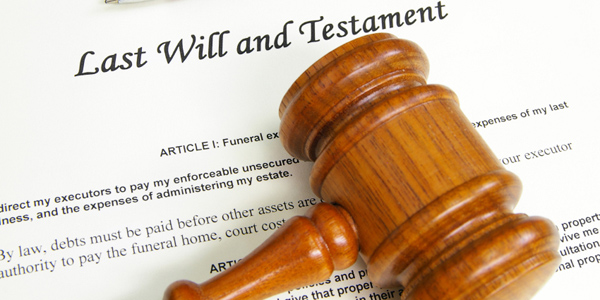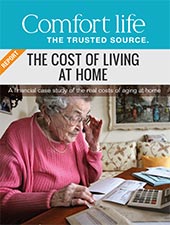Prepare Your Will With Taxes In Mind
One of the main reasons for drawing up a will is to make sure your assets are distributed according to your wishes after you die. However, you can also take steps to minimize taxes on your estate.

Here are some tips from Chartered Accountant Geoff Gravett, a partner with Millard Rouse & Rosebrugh LLP in Brantford.
- Understand what taxes may apply on death – “Estate administration taxes are based on the size of the estate that is required to be probated,” says Gravett. “In Ontario, probate rates are calculated at a rate of $5 per $1,000 for the first $50,000 of assets required to undergo probate and $15 per $1,000 for assets in excess of $50,000 that are required to undergo probate.”Tax may also apply to registered plans, such as Registered Retirement Savings Plans (RRSPs) and Registered Retirement Income Funds (RRIFs). “Registered plans are generally deemed to be included in income at a rate of 100 per cent,” says Gravett. “For example, an RRSP with a value of $100,000 at the date of death would result in $100,000 being taxed as income on the deceased’s final return. However, in certain circumstances, the registered plan may pass to a qualified beneficiary on a tax-free basis. The most common example of this is where a spouse is named as the beneficiary. In this case, the value of the plan wouldn’t be taxed until the death of the surviving spouse.”At the time of death, you are deemed to have disposed of all of your assets at fair market value. “For assets with accrued capital gains, this means that the capital gain becomes taxable at the time of death. These assets could include things like non-registered investment portfolios, shares in private companies and real property. Any gains on your principal residence are not taxed,” explains Gravett. At the time of death, 50 per cent of the accrued gain on assets subject to these rules would be included in the taxable income on the deceased’s final return. “As with registered assets, a tax-free spousal rollover is available at the time of death. In this case, the accrued gain would not be taxed until the death of the surviving spouse.”
- Determine what taxes would apply to your estate – “Prudent tax planning would involve looking at all of the various taxation impacts that would arise in the event that you die today with your existing will, or without one,” advises Gravett. “You can then examine the various alternatives that will achieve your objectives while reducing taxes.”
- Take steps to defer or minimize taxation of your estate –“Planning techniquescan include a wide variety of strategies,” says Gravett. These include, but are certainly not limited to:
- Transferring the ownership of an asset prior to death
- Taking advantage of income-splitting opportunities
- Using the tax-free rollover rules, as applicable
- Making sure beneficiaries are named on registered plans and life insurance policies
- Making specific charitable bequests
- Using a variety of trust structures, including spousal trusts, that are allowed under the Income Tax Act
- Using secondary wills for assets not requiring probate
- Estate freezes, using privately owned corporations
- Talk to a professional– “I would always recommend that a lawyer be involved in the actual drafting of your will,” says Gravett. “A Chartered Accountant can add significant value to the process by working with your lawyer to outline the current tax consequences to the estate in the absence of planning. Your CA can then work on a variety of planning strategies to minimize the taxation impact, while making sure your assets are distributed according to your wishes.”
Written by The Institute of Chartered Accountants of Ontario
* * * * *
Did you consult a Chartered Accountant when you prepared your will or planned your estate? Share your thoughts in the Comments section below.
Related:
How to Strategically Save After 65
Will Your Retirement Savings Run Out?


